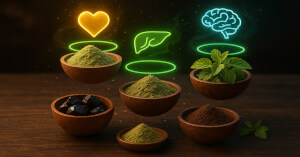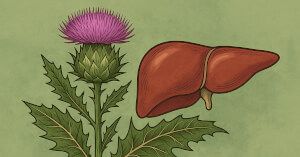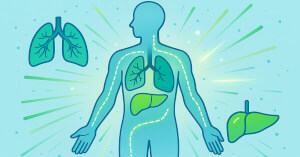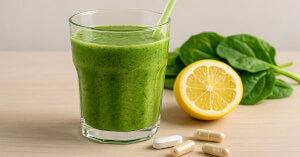
9 Supplements That Help Dissolve Kidney Stones
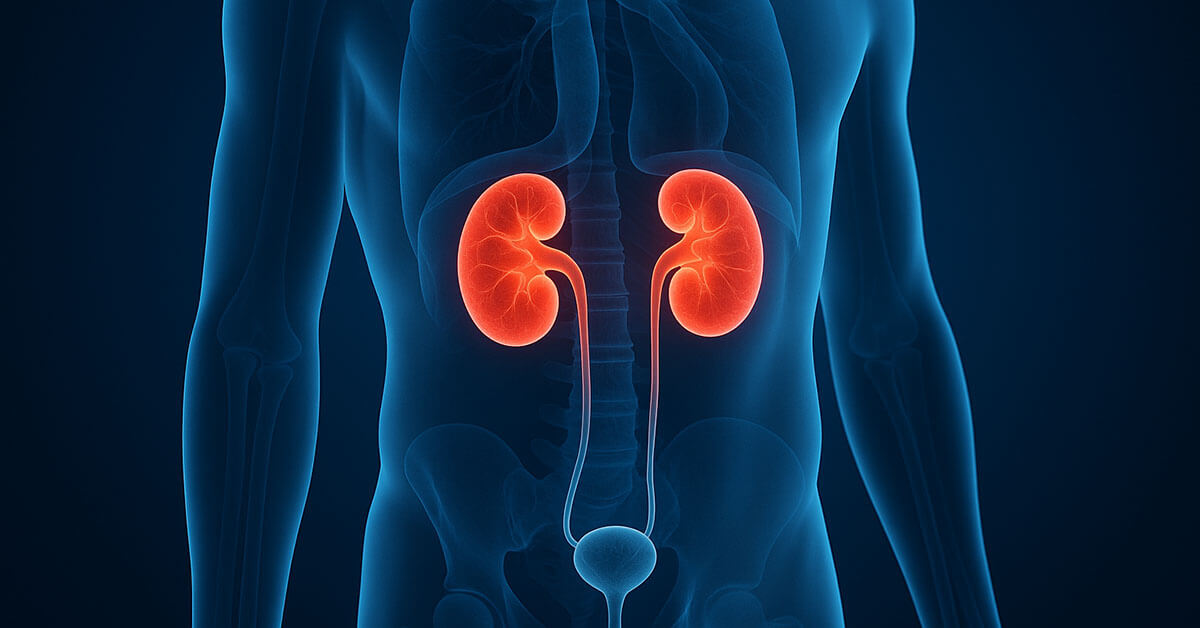
9 Supplements That Help Dissolve Kidney Stones
Kidney stone pain is intense and can stop you in your tracks. While medical care is sometimes necessary, certain supplements may help your body break down minerals, relax the urinary tract, and pass stones more comfortably. Below are the options most often discussed in the research and in clinical practice, plus simple tips to use them safely at home.
What Are Kidney Stones?
Kidney stones are hard deposits that form when minerals and salts, like calcium and oxalate or uric acid, build up in your urine. Dehydration, a high-sodium diet, and genetic factors can all play a role. The goal of natural treatment is to reduce crystal clumping, increase urine flow, and make stones easier to pass.
The Best Natural Supplements for Kidney Stone Relief
Chanca Piedra
Known as "stone breaker", this herb is used traditionally to support the urinary tract. Studies describe antispasmodic and anti-crystallization actions that can help relax smooth muscles and reduce the sticking together of crystals. Many people use it short term during acute symptoms.
✔️ Typical Dosage Range: 400–800 mg daily of standardized extract, or per label if using tea or tincture.
Magnesium Citrate
Magnesium can reduce the formation of calcium oxalate crystals. The citrate form adds extra benefit because citrate binds calcium in urine, which helps keep crystals from growing. Clinical data suggest magnesium with citrate may lower stone burden and make stones easier to pass.
✔️ Typical Dosage Range: 200–400 mg elemental magnesium daily, preferably as magnesium citrate, taken with food.
Potassium Citrate
Potassium citrate raises urinary citrate and can make urine less acidic. This helps dissolve calcium-based crystals and discourages new ones from forming. Doctors often use prescription doses, but over-the-counter citrate powders exist. If you take blood pressure or heart medicines, ask your doctor first.
✔️ Typical Dosage Range: Often 20–60 mEq per day in divided doses under medical guidance. For OTC citrate powders, follow label instructions and keep total potassium intake safe.
Vitamin B6 (Pyridoxine)
Vitamin B6 helps enzymes that process oxalate. Low B6 status is linked with higher urinary oxalate, which can feed calcium oxalate stones. Supplementation has been shown to reduce urinary oxalate in some people, which may ease stone passage and reduce recurrence.
✔️ Typical Dosage Range: 10–50 mg daily. Avoid long-term high doses above 100 mg unless supervised.
Citric Acid (Lemon Juice)
Citric acid binds to calcium in urine and helps keep crystals from sticking together. Lemon water is a simple, at-home way to raise urinary citrate and may gently help dissolve small calcium stones while reducing recurrence. It is most useful alongside steady hydration.
✔️ Typical Dosage Range: Juice of 1/2 to 1 lemon diluted in 300–500 ml water, 1–2 times per day. Rinse mouth afterward to protect tooth enamel.
Dandelion Root
Dandelion is a mild, natural diuretic. It can increase urine output, which helps move small stones along. It also contains bitter compounds that support digestion and fluid balance. If you have allergies to related plants, use caution.
✔️ Typical Dosage Range: 1–2 g dried root extract daily or per product label; tea is also commonly used.
Nettle Leaf
Nettle leaf supports urinary volume and provides antioxidants. By promoting steady urine flow, it can help reduce irritation and assist the passing of tiny stones or sand-like crystals. Choose leaf products, not root, for urinary support.
✔️ Typical Dosage Range: 300–500 mg nettle leaf extract once or twice daily, or tea per label.
Vitamin D3
Vitamin D supports healthy calcium handling. Taking it with Vitamin K2 (MK-7) helps direct calcium into bones instead of letting it build up in soft tissues like kidneys or arteries. Keeping D and K in balance supports mineral metabolism without overloading the urinary system. Monitor your blood levels if you form stones frequently.
✔️ Typical Dosage Range: 1000–2000 IU Vitamin D3 plus 90–120 µg Vitamin K2 (MK-7) daily. Adjust D3 based on blood tests.
Calcium Citrate
It sounds counterintuitive, but calcium citrate can help bind oxalate in the gut, so less oxalate reaches your kidneys. This is especially useful if your diet is low in calcium or if you eat high-oxalate foods. The citrate part also adds a crystal-inhibiting effect in urine.
✔️ Typical Dosage Range: 200–500 mg elemental calcium with meals that contain oxalate-rich foods; avoid taking at the exact same time as iron or zinc.
Additional Tips for Relief
In addition to supplements, a few simple lifestyle habits can make a big difference when managing or recovering from kidney stones. Here are key steps to support your kidneys naturally:
- Hydrate steadily: aim for pale-yellow urine throughout the day. Consistent fluid intake helps push stones along.
- Citrus helps: lemon water adds natural citric acid, which binds calcium in urine; keep it as a daily habit alongside supplements.
- Consider Apple Cider Vinegar as a gentle add-on: dilute 1–2 tbsp in a large glass of water; evidence is limited, but some people report relief. Protect tooth enamel by rinsing your mouth afterward.
- Limit sodium and very high animal protein intake: both can increase stone-forming minerals in urine.
- Track symptoms: if pain escalates or you develop fever, chills, or vomiting, you need medical care. Large or obstructive stones often require procedures or prescription therapy.
FAQ
Can supplements dissolve kidney stones?
Some supplements can make urine less favorable for crystal growth, relax the urinary tract, and increase urine volume. This can help break down or pass smaller stones more comfortably. Large stones or severe symptoms still need medical treatment.
What are the most effective supplements for kidney stones?
The most studied and widely recommended supplement for kidney stones is Chanca Piedra. It helps relax the urinary tract and may reduce the aggregation of crystals. Potassium citrate is also highly effective for dissolving calcium-based stones and preventing new ones from forming.
What supplements should I avoid if I have kidney stones?
High doses of Vitamin C can increase urinary oxalate and may worsen calcium oxalate stones. Overusing calcium or Vitamin D3 supplements without medical supervision can also lead to excess calcium in the urine. Always balance Vitamin D3 with K2 and take calcium only with meals if your doctor recommends it.
Is Chanca Piedra safe?
Short-term use is generally well tolerated in healthy adults. If you are pregnant, nursing, on blood thinners, or have chronic conditions, talk with your doctor first.
Which is better: magnesium citrate or potassium citrate?
They work differently and are often complementary. Magnesium helps reduce calcium oxalate crystal formation, while potassium citrate raises urinary citrate and reduces acidity. Many people use both, with a doctor's guidance.
Should I avoid calcium if I get kidney stones?
Not necessarily. For many people, adequate calcium from food or calcium citrate with meals helps bind oxalate in the gut and may lower stone risk. Very high calcium supplements without guidance are not advised. Personalized advice from your clinician is best.
When should I see a doctor?
Seek urgent care for severe or unrelenting pain, fever, persistent vomiting, or blood in urine. If you cannot pass a stone within a few days, you may need imaging and medical treatment.
This article was originally published on Stackbb, your trusted source for science-based supplement guides.
